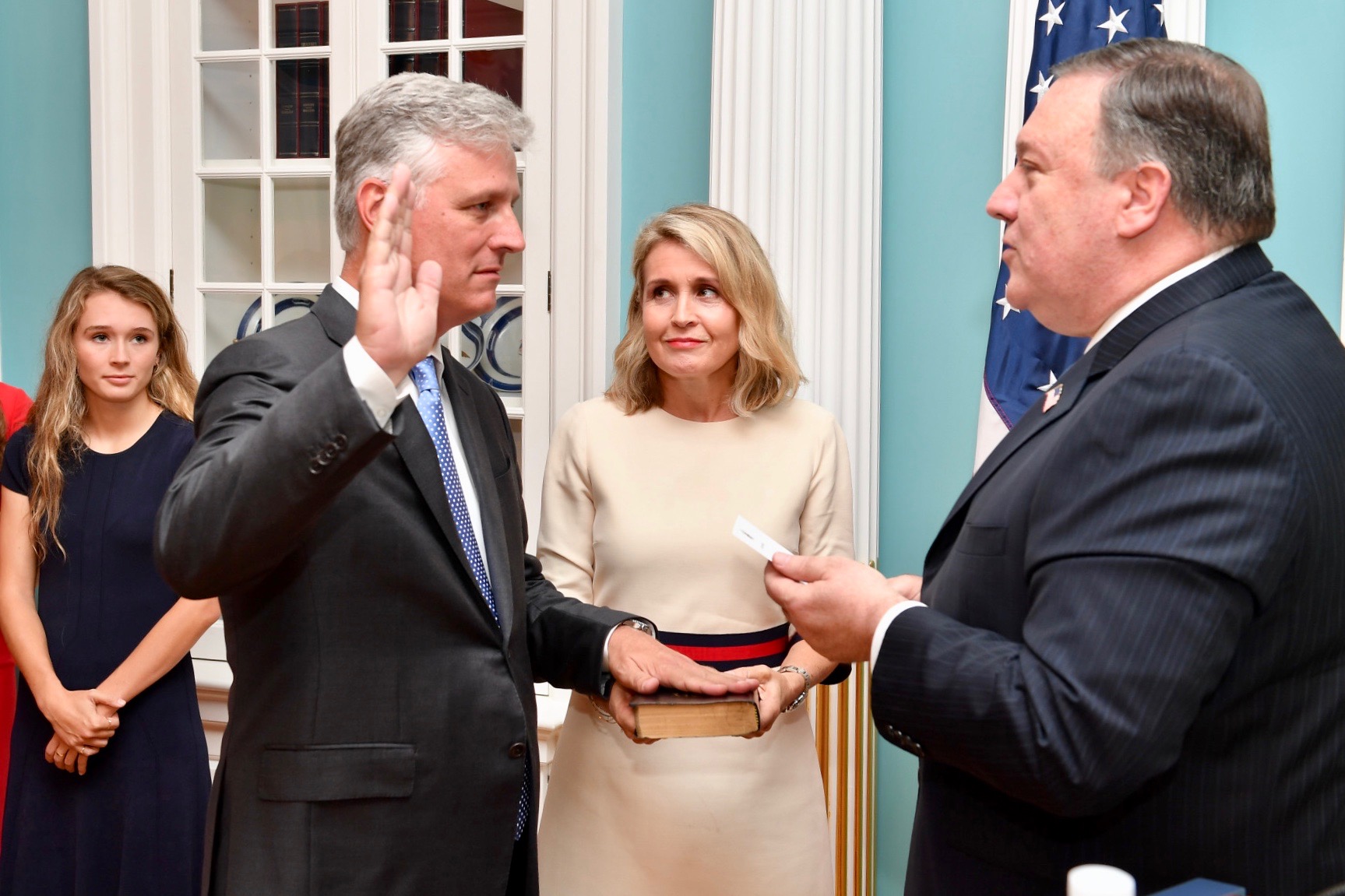
MANILA – The Chinese Embassy in Manila has accused US National Security Adviser Robert O’Brien of “sowing discord” between China and the Philippines over its Beijing-related remarks during his official visit to Manila on Monday.
In a statement dated November 23, the embassy described O’Brien’s remarks on the South China Sea, Hong Kong, and Taiwan issues as “unreasonable”.
“He blatantly accused China on no ground, grossly interfered in China’s internal affairs, deliberately exaggerated regional tensions, and attempted to sow discord between China and the Philippines,” it said.
The embassy also scored Washington for what it described as stirring up a confrontation among countries in the region, claiming the latter has “interfered” in China and some Southeast Asian states’ efforts to manage disputes in the South China Sea.
It said the US has no right to meddle in the maritime issue since it is not a party to the South China Sea dispute nor the United Nations Convention on the Law of the Sea (UNCLOS).
“The US itself refused to join the UNCLOS, but it talked much about UNCLOS and abused its provisions everywhere, infringing upon the maritime rights and interests of other countries,” the embassy said.
“The US is not a party to the SCS dispute, but it frequently sends warships and planes to the SCS on numerous occasions for military provocations, goes as far as using the electronic codes of civil aviation planes of the Philippines and other regional countries to carry out espionage flights in the SCS.”
It called on the US to “respect China’s territorial sovereignty and maritime rights” in the region and “stop interfering and inciting confrontation in the South China Sea.”
Beijing’s nine-dash line claim, covering at least 80 percent of the strategic waterway, was invalidated by the Permanent Court of Arbitration, which based its “final” and “binding” decision on UNCLOS.
To date, China, a signatory to the maritime treaty, continues to reject the arbitral award.
Earlier this year, Washington formally aligned its position on the South China Sea with the Arbitral Tribunal’s 2016 Ruling.
During his Manila trip, O’Brien reaffirmed Washington’s commitment to back Manila in protecting its sovereign rights and offshore resources under international law.
“I just want to say that those resources belong to the children and grandchildren of the people here. They belong to the Philippine people,” he said.
“They don’t belong to some other country that just because they may be bigger than the Philippines, they can come take away and convert the resources of the Philippine people. That’s just wrong. That’s what Secretary (Mike) Pompeo said in February.”